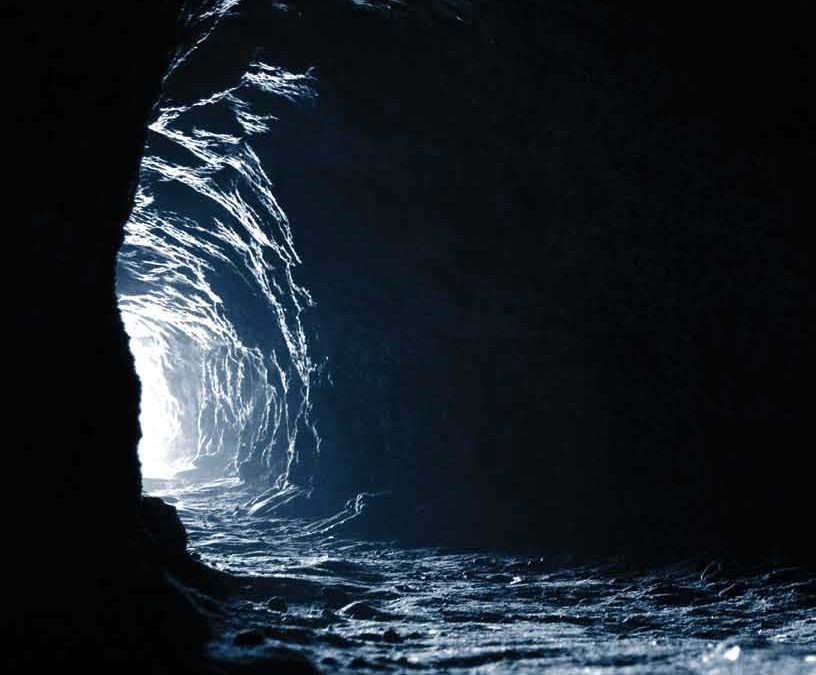Have you ever ended up somewhere with no clear idea of how you got there? Maybe not just on a road, but in your family, congregation, career or community? While rolling through routines, the landscapes of home, office, school, church, forest, city and towns can blur around me. The familiar topography includes hills of to-do lists, but I tell myself it’s manageable. I’m on automatic. And I forget that it’s all holy terrain.
Then there’s a day—much like Ash Wednesday—when I go to microwave my tea, which cooled while I was typing. I’m thinking of a fractured relationship with someone I don’t often see, someone I care about deeply, but whose barbed comments hook me. Regardless of my response, I always feel stunned and slow, gills open, stuck, doubting that this can ever work out. That day, without looking, I open the refrigerator for a bagel, expecting the usual. Unbeknownst to me, the hinges have cracked. Suddenly I’m unsure of my location. I realize that I am crouching, holding up two surprisingly heavy freezer and refrigerator doors, and my thumb is swelling.
Later, in my car, I find a bookmark with words a wise woman offered me months ago: “Every challenge is an opportunity for growth.” I let her words soak in. Doubt is my biggest challenge, I realize. Could I “listen to the voice of doubt in Easter, too,” as Liv Larson Andrews suggests (p. 21)?
Doubt is an obstacle. Consider the inventions not made, the books not written, the phones not dialed, the emails not sent. We didn’t think we could, or we didn’t think it would help, or we stopped hoping—because doors that should open, fall on us.
Two years ago, my youngest son, Jacob, a soccer player, was chosen to be goalie for the first time. He protested: It was his birthday; he’d never done it before; he was afraid. But they still needed him to serve. At the end of the game, Jacob said mournfully, “But I prayed! And I still got scored on! Does God not love me?”
As we walk through life, from Lent to Easter, we often doubt God’s purpose. We keep tally of goals made and lost. We measure the latitude and the longitude of our positions, relative to those of others. But it is not about measurements or keeping score. For God, it’s more about what we’re becoming. We don’t grow into better goalies without some balls coming at us, some doors falling off, some sideways comments.
Now Jacob is no longer afraid to be goalie. Someday the rest of us will get there, too, to a point where we can say, “It’s OK. It’s just balls coming at me. It’s just a statement someone made. It’s cool, even if I didn’t block it the way I wanted to.”
“In vulnerable times and places, we have the choice of being a light for others—or crumbling,” writes Lindsay Hardin Freeman (p. 32).
Doubt goes with us on our journey. Often, it doesn’t leave us even when we get to Easter. But doubt isn’t strong enough to keep Jesus in the grave. Jesus is risen, even though those closest to him denied him, doubted him and locked their doors.
Even if we lock our doors, Jesus shows up. And he doesn’t just show up. He lets us, with Thomas (the Doubter), feel how his wounds connect with our pain and doubt.
As Liv Larson Andrews (p. 23) puts it, “we see that no brokenness of our own—no darkness, pain, distance or loneliness—can ever sever our connection to God.”
Elizabeth Hunter is editor of Gather.



